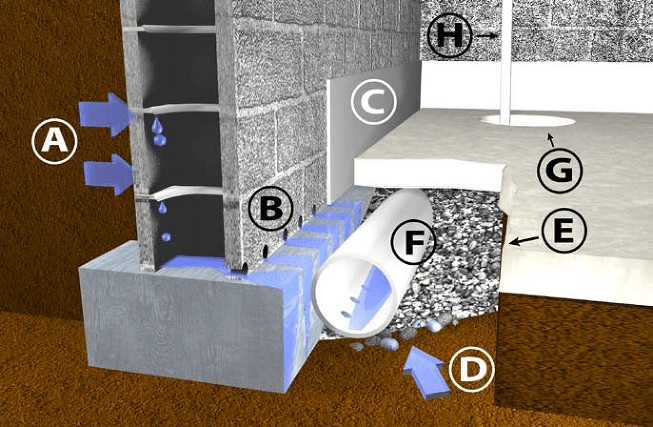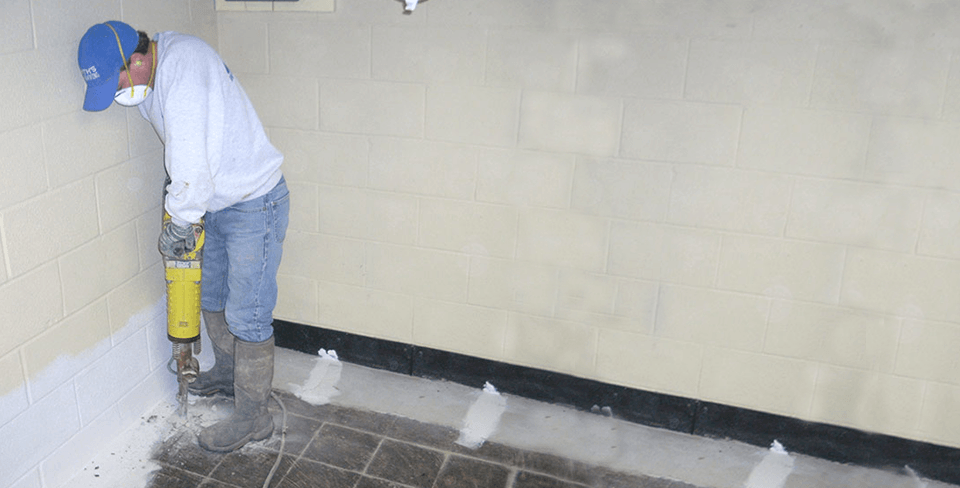
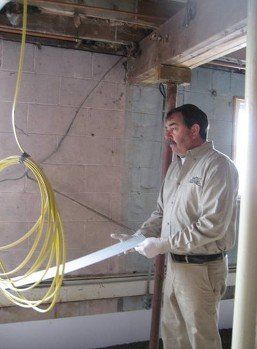
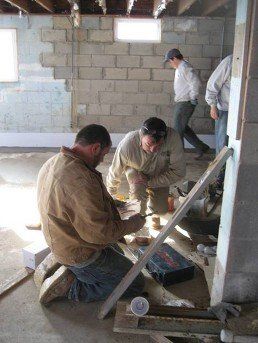
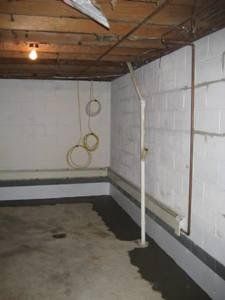
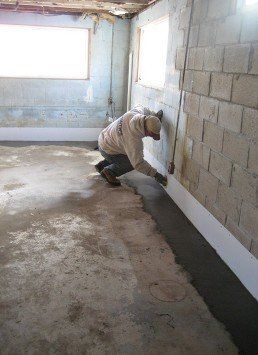
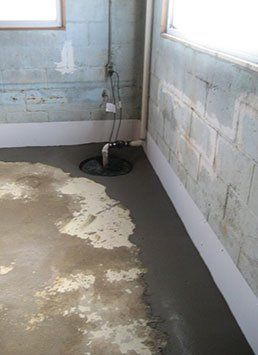
How waterproofing works
There are several waterproofing methods Smith’s may use to correct your specific waterproofing condition. Proper choices depend on diagnosed causes. Interior repairs using preferred means and materials are used to fix many common water-seepage issues. Exterior techniques, tools and materials may be needed especially for conditions involving the foundation’s integrity or drainage systems. Solutions are decided on a per-condition basis after an inspection determines the cause(s). Smith’s Waterproofing has the experience to recognize and repair any water-related condition to assure quality repairs. You can get a better understanding of your drain system through this illustration .
Your interior drain system
This illustration gives you an overview of your interior drain system. An expert from Smith’s will be glad to explain things further. For now, take a look at the snapshot and corresponding descriptions below for a tour of components that make up your drain system.
A. Water infiltrates block walls through cracks, mortar joints and deteriorating waterproofing.
B. Weep holes prevent water buildup inside the block cores by allowing it to drain out the bottom.
C. Watershield allows water to flow out of the wall and diverts it to the drain system below the floor.
D. Hydrostatic Pressure pushes water up through the basement floor or cove.
E. Washed rock is placed around and beneath the drain tile to speed the
drainage process and filter dirty water to prevent buildup that could eventually clog your drain.
F. Perforated drainage pipe collects water from under the floor and routes it to a sump pit or storm drain.
G. Sump pit collects water from drain tile.
H. Water is discharged from sump pit to the exterior of the building using a commercial-grade sump pump.
